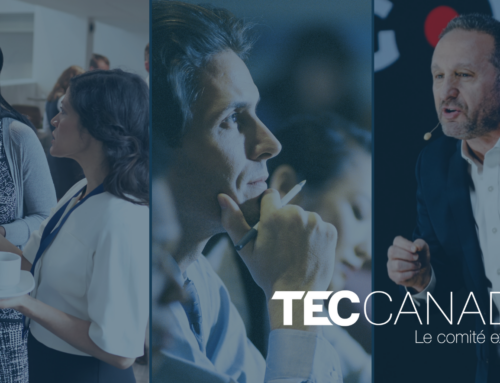Do executives truly understand the importance of employee engagement?
Looking at a 2017 DecisionWise study, it would appear so; 73% listed employee engagement as either very important or important.[1] However, for the most part, employees are not engaged; 85% of respondents worldwide in Gallup’s State of the Global Workplace reported being not engaged or actively disengaged, leading to a $7 trillion loss in productivity (engagement is defined as the extent to which employees feel passionate about their jobs, are committed to the organization and put discretionary effort into their work.)[2] Pinpointing that passion to turn results is the key here and the research backs it up; opportunities for learning and development were the second leading factor in inspiring employee work in a 2018 LinkedIn study.[3] Personal development stretches beyond employee engagement, it stretches your bottom-line. Countless studies point to the reciprocal relationship between engaged teams and profitability (21% increase according to Gallup)[4]. For one company, employee engagement has been the framework of the organization since its founding in 1982. Brad Tindall, President of The Great Little Box Company (GLBC) shared with us how his organization fosters a culture of life-long learning and development.
TEC Canada: What does life-long learning mean for The Great Little Box Company?
Brad Tindall: We’re a passionate company about growth, both individually and as an overall organization. As with any organization, the learning and development needs to be a priority; if you’re not helping your employees learn, you’ll quickly be out-paced by the competition.
TC: What initiatives does GLBC lead to enhance development of their employees?
BT: For one, all our senior management team is involved in TEC Canada, with numerous members in the KEY Executive program. TEC has been a part of our company for many years and you see evidence of this in all aspects of our business from customer service, our employee review program, our issue processing approach, social events and our company-wide profit-sharing plan.
A few years ago, we implemented an internal lean program to help teams learn from one another, strengthening engagement and alignment. For example, through cross-functionality involvement, a production employee would meet in small teams for 3-4 months and learn about other departments, building his/her skills to better understand our organization. Supplemented by this, we encourage our employees to express areas of interest and aide them in continuing education so they can grow into the role they best see fit.
Additionally, as an organization we’re about learning. Like TEC, we bring in speakers covering a variety of topics helping people not just grow business knowledge but develop personally also; we’ve brought in speakers covering nutrition, health & wellness. We have a great HR department committed to learning; we attend numerous seminars and award galas every year and while it’s an honour to place plaques on our walls, when we go and learn what other organizations are doing and can implement those solutions in our own way, it’s highly effective.
TC: What have been the effects of GLBC’s initiatives in development and life-long learning?
BT: It’s hard to pinpoint what’s been the exact ROI; Robert (Bob) Meggy, CEO, who’s also a TEC member, has instilled these principles since the company’s founding (1982). In the company’s first month of business, April 1982, GLBC reported a $8,000 revenue and a $17,000 net loss with only 3 employees; today we have over 300 employees and have seen revenue grow by more than 70% in the last 5 years. We foster a cohesive culture, one where we share in the lives of all our employees and celebrate their accomplishments and milestones outside of the workplace while still continuing to show results. We have been fortunate to be recognized as part of the Best Managed Companies of Canada program for the last 15 years and are proud of our Platinum status within the program. Just like TEC and the HR Conferences we attend, this program provides insight into best practices and innovative ways to further grow and develop our teams and business units. We see no shame in learning from the success of other organizations and take pride in sharing our stories with them as well.
TC: Organizations that follow a framework similar to GLBC – one that values their people by investing in the whole individual while sharing in the development of others – will be set up for imminent success. What initiatives have advanced your organization recently?
The Great Little Box Company is a manufacturing and packaging solutions organization based in Richmond, B.C.; offering products and services in corrugated boxes & displays, labeling, custom products, shipping & storage supplies and more. They are consistently named as one of the Best Managed Companies of Canada – achieving Platinum status 8 times – for their commitment to their employees both within and outside the workplace. Brad Tindall has been President of the organization since 2015, he holds a Bachelor of Technology from The British Columbia Institute of Technology (2008).
[1] https://decision-wise.com/important-employee-engagement-executives/
[2] https://www.gallup.com/workplace/238079/state-global-workplace-2017.aspx
[3] https://www.linkedin.com/pulse/want-happy-work-spend-time-learning-josh-bersin/
[4] https://www.forbes.com/sites/nazbeheshti/2019/01/16/10-timely-statistics-about-the-connection-between-employee-engagement-and-wellness/#32fa964d22a0



